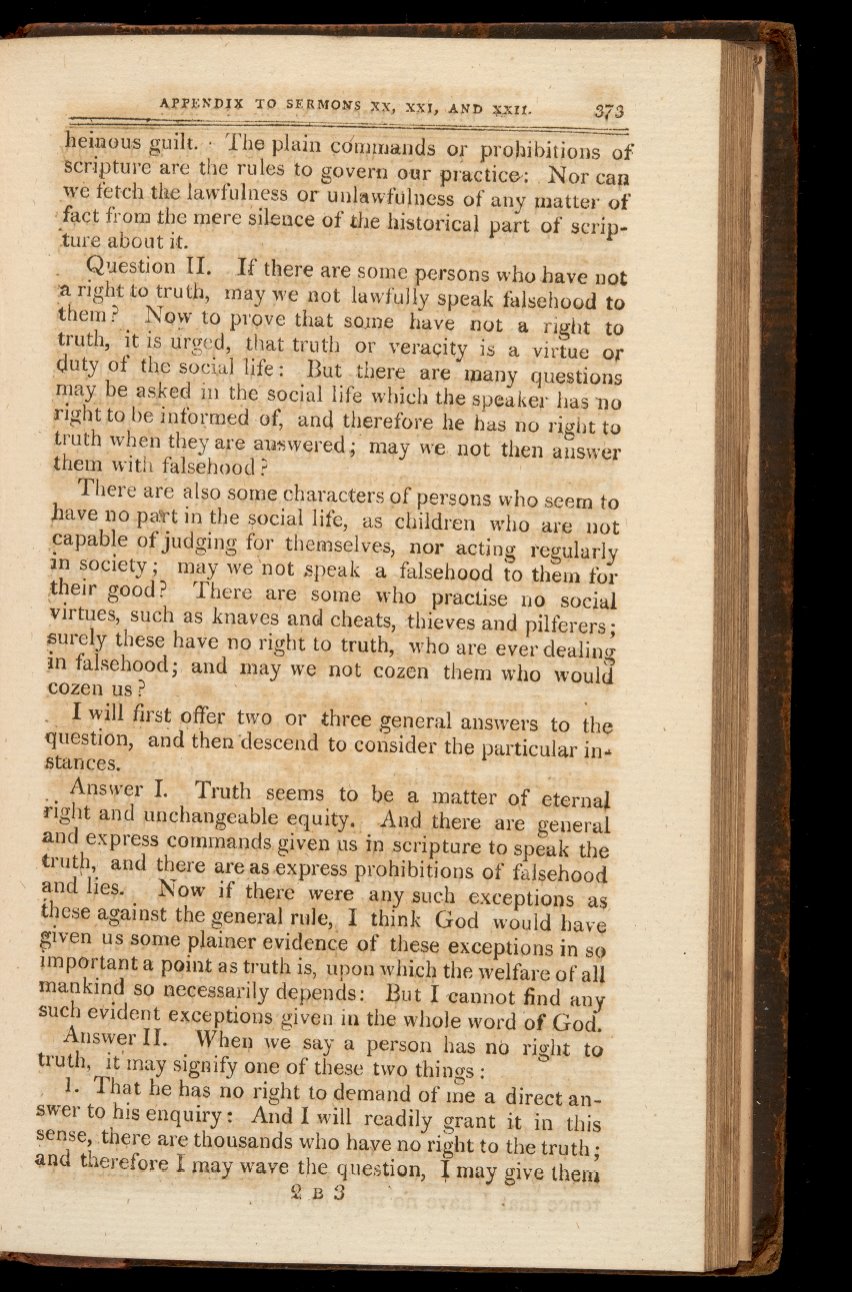

APPENDIS
TO
SERMONS
$x,
xXI,
AND
Y7Cl2.
573
heinous
guilt.
The plain
çómznands
or prohibitions
of
scripture
are the rules
to
govern
our
practice,:
Nor
can
we
fetch the lawfulness
or
unlawfulness
of
any
matter
of
fact
from
the
mere silence
of
the historical
part of
scrip-
sture
about
it.
Question
II.
If
there are
some
persons
who
have not
A
right to truth,
may
we
not
lawfully
speak falsehood to
them?
Now to prove
that
some
have
not
a right
to
truth,
it
is
urged,
that truth
or veracity
is
a virtue or
duty
of
the social
life: But there are
many questions
may be
asked
in
the social
life
which
the speaker
has
no
right
to
be
informed
of
and
therefore
he has no
right
to
truth
when
they
are answered;
may
we
not
then answer
them
with
falsehood
?
There
are
also some
characters
of
persons
who seem
to
have
no
pat
in
the
social
life, as
children
who
are
not
capable
of
judging
for
themselves,
nor
acting regularly
in society;
may
we
'not
speak a
falsehood to them
for
their
good?
There are
some who
practise no social
virtues,
such
as
knaves and cheats, thieves and
pilferers;
Surely
these
have no
right
to
truth,
who
are ever dealing
in
falsehood; and
may
we
not
cozen them
who
would
cozen
us
?
I
will
first
offer two
or three general
answers to the
question, and
then
'descend to
consider the
particular in-
stances.
Answer
I.
Truth
seems
to
be a
matter
of
eternal
right
and unchangeable equity.
And
there are general
and
express commands
given
us
in
scripture
to
speak the
truth,
and there are
as
express
prohibitions
of
falsehood
and
lies.
Now
if there
were
any such
exceptions
as,
these against the general
rule,
I
think
God
would
have
given us
some
plainer
evidence
of
these
exceptions
in so
important
a
point
as
truth
is,
upon which
the welfare
of
all
mankind
so
necessarily
depends: But
I
cannot
find
any
such
evident exceptions
given in
the
whole word
of
God.
Answer
II.
When
we
say
a
person
has nó
right
to
truth,
itmay
signify
one
of
these
two
things
:
I.
That
he has
no
right
to
demand
of
me a
direct
an-
swer
to his
enquiry
:
And
I
will
readily
grant it
in this
sense,
there
are thousands
who
have no
right to
the
truth;
and
therefore I
may
wave
the,
question,
I
may
give
them
B

















